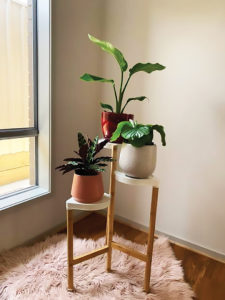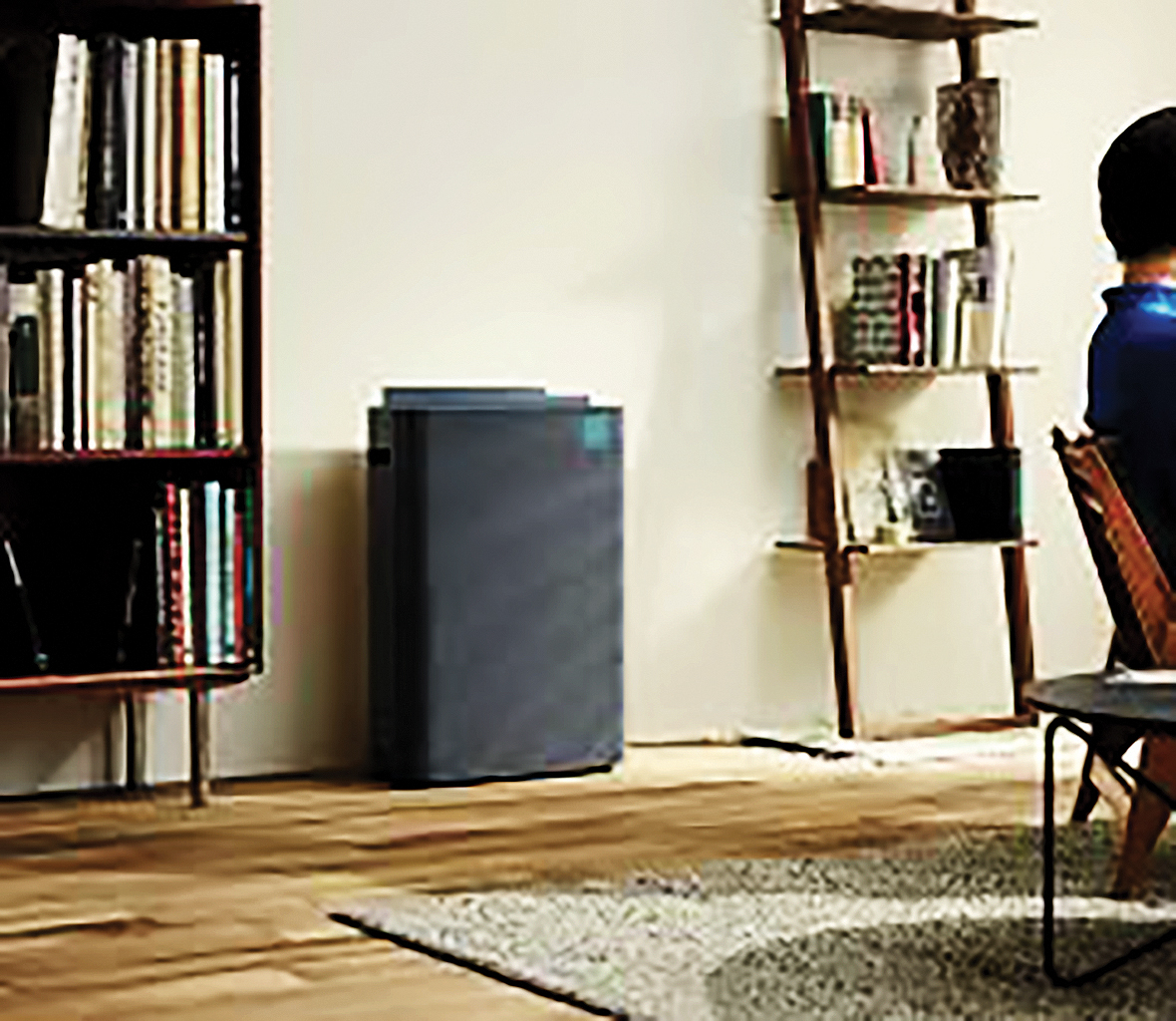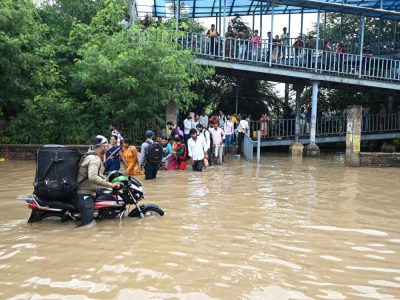With the ongoing air pollution crisis in Delhi, many have opted for air purifiers. But can it be of any help?
Delhi’s air quality has worsened again with the Air Quality Index (AQI) falling to 328. The pollution level of the capital has been shuffling between ‘very poor’ and ‘severe’ categories of AQI. With no plausible solutions in hand, this situation has turned into a business opportunity for a number of air purifier companies.
Not just advertisements from famous air purifier brands but various news organisations like India Today, Business Today, News 18, Economic Times, Times of India, The Quint and many more have been recommending air purifiers to deal with Air Pollution. These media reports include extensive details on which air purifiers are affordable, popular and efficient. Some of these also claim to burst myths around air purifiers.
One of these media reports was of Cyrus John from The Quint. He says that given the increasing levels of pollution in North India, the topic is at the top of his mind right now. “The video is intended to help those who are already considering buying an air purifier,” he adds.

Experts on air pollution believe that anybody who understands the problem of air pollution would not recommend an air purifier. “Air Purifiers are not at all a solution to air pollution. Air Purifiers are just protective measures for us to protect ourselves from health harms and the ill-effects of polluted air until we are able to clean our air,” says Jyoti Pande Lavakare, an environmentalist and Co-founder, Care for Air, a nonprofit organisation dedicated to increase awareness on air pollution.
Along a similar line stands the opinion of Bharati Chaturvedi, an environmentalist and Founder-Director of Chintan, an environmental NGO working for environmental sustainability. She says, “Air Purifiers are not going to change much — neither indoor nor outdoors. Maybe they will only improve the air within a few meters or hundred meters.”
Elaborating further on air purifiers, Lavakare says that air purifiers are limited to homes. “If the outdoor air is polluted, you cannot carry the air purifier outside.” She explains it with an example. She believes that breathing polluted air is like smoking cigarettes. “Which is better for you, smoking 40 cigarettes or smoking 20 cigarettes? So if you’re using air purifiers in closed space, you’re giving your lung some relief,” she adds.
Along with the limitation of not being able to carry it outside one’s homes and cars, Chaturvedi also highlights a vicious cycle involved in using air purifiers. “Air purifiers run on electricity. And electricity often runs on coal. And that coal pollutes the air somewhere else,” she explains. She went on to say, “Only a lazy man with power can think of these ideas.”
Another point of discourse is the question of affordability. “I do not think that the air purifiers are affordable for a middle class family, not even for an upper middle class family,” says Anjuli Sharan, a resident of Gurugram, which is one of the highest polluted areas of Delhi-NCR. Akash Baghel, a student and resident of Shahdara, holds the same view. “One can consider them as a luxurious item.” He also assured that nobody in his locality would spend that much money on an air purifier which only serves one room.
On being asked whether she ever felt the need of an air purifier, Sharan says, “I do not feel the need of air purifiers inside my house, at least. But when we go outside, one can totally feel the pollution.” She also discussed how she was introduced to the concept of air purifiers from the advertisements on various online shopping websites.
Media and advertisements have played a substantial role in the promotion of air purifiers. “I got to know about air purifiers from news. I saw them getting installed near Red Fort,” says Baghel. He adds that there are articles in newspapers related to air purifiers on weekly basis. “Besides, there are a lot of advertisements of various companies promoting their products to purify air,” Baghel goes on to say.
While talking about his intention of producing a video on air purifiers, John says that while the government has to ensure clean air through legislations and controls, it is up to the individuals to safeguard their health. Having a similar stance on government’s need to implement and enforce solutions to give clean air, Lavakare says, “There is a difference between private responsibility and public accountability.”
Discussing the possible solutions of air pollution, Chaturvedi suggests that robust, affordable and safe bus-based transports are needed in Delhi-NCR so that people can give up on their two wheelers. She also adds that various power plants in the vicinity of Delhi must upgrade their standards.
Extending the idea of long term solutions, Lavakare discusses the need of a Clean Air Commission. She believes that since the problems is caused by a number of reasons-construction dust, vehicular emission, crop stubble burning, fire crackers and industrial emission- one silver bullet cannot solve all the problems. “The solution is to have one empowered, autonomous and committee to be responsible for cleaning the air in a time bound manner with specific goals,” she explains.
Elucidating the constitution of the commission, Lavakare says “We need to have something like what Nandan Nilekani did for Aadhar cards.” She says that this commission would be hold accountable for the billions of people breathing polluted air.
While the environmentalists have been finding and suggesting ways to deal with the menace, a few Members of the Parliament and senior officials did not even care to attend the meeting of a parliamentary committee on the issue of air pollution.
With no assurance from the government and unaffordable air purifiers, residents of Delhi-NCR have found an alternate solution to the problem. “In our house, we have a lot of indoor plants. And that helps,” says Sharan, who has a family of five. Baghel also shared how he and his friends follow an environment friendly initiative, namely, #Green_good_deed, to tackle air pollution by investing in long term solutions.
Talking further on how people have started using air purifiers, mistaking it to be solution, Lavakare says, “If all the decision makers, influencers and people start using air purifiers, they will feel okay. They won’t feel the need to really clean the air.”
Commenting on media reports that focuses on air purifiers, Chaturvedi perceives that the media is quite sensible on the reporting of air purifiers. But she also believes that the media should talk more about how air purifiers are a myth.
Redmi, one of the most popular brands of air purifiers, refused to comment when contacted. Other brands like Dyson and Phillips could not be reached for comments.





